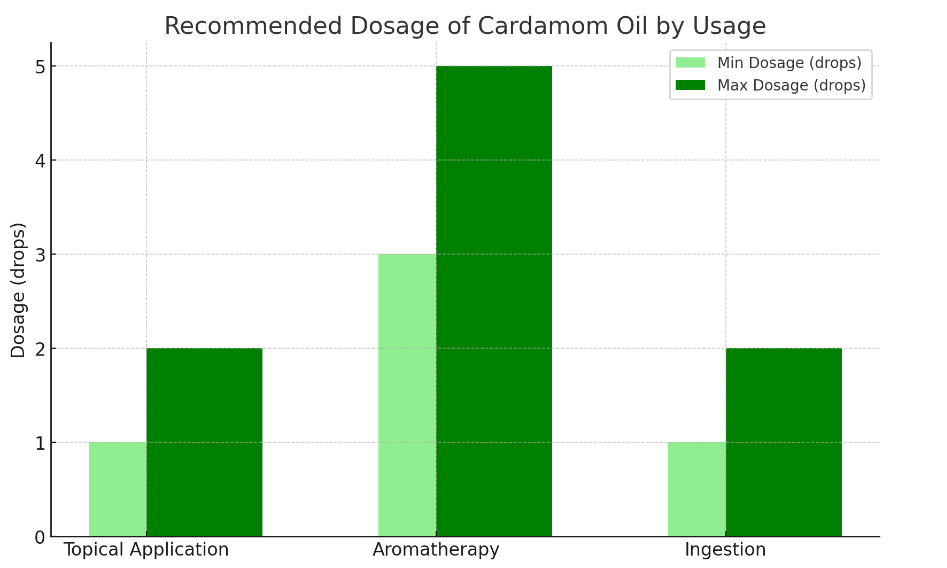Prices changed after GST cut (MRP may differ)
To shop in USA, Canada and UK, go to
miduty.shop


Sukshmaila is the Sanskrit name for Cardamom. Cardamom oil, extracted from the seeds of the cardamom plant, is known for its sweet, spicy aroma and is widely used in cooking and baking. Beyond its culinary applications, it offers a range of potential benefits. It may help support digestive health, freshen breath, and provide relief from respiratory issues.
Additionally, cardamom oil is often used in aromatherapy for its uplifting and calming effects. Its antimicrobial properties make it a popular choice for natural remedies as well.

Cardamom Oil is included in Miduty Shilajit 3X to add flavor and enhance the overall sensory experience of the supplement. This aromatic oil, combined with the rare potency of shilajit and the enhanced benefits of 3X Gold, creates a truly premium formulation.
The unique blend of these ingredients not only elevates the effectiveness of the supplement but also offers a delightful taste that sets it apart from others on the market.
Cardamom oil amplifies the bioavailability of shilajit, ensuring that its rich minerals and nutrients are efficiently absorbed by the body. Meanwhile, 3X Gold enhances these effects, providing a concentrated source of natural energy and vitality.
Together, they form a rare and premium formulation designed to support optimal health, making Miduty Shilajit 3X a distinguished choice.
| Benefits |
Description |
|
Digestive Health  |
Cardamom is a natural digestive aid known for its ability to soothe the stomach and relieve discomfort. It stimulates the secretion of digestive enzymes, helping to reduce bloating, gas, and indigestion. Its anti-inflammatory properties can also calm an upset stomach, making cardamom a popular remedy for digestive issues like nausea, acidity, and heartburn. [1] |
|
Antioxidant Properties  |
Cardamom oil is rich in antioxidants, which help protect the body from oxidative stress caused by free radicals. These antioxidants neutralize harmful molecules, reducing cellular damage and supporting overall health. [2] |
|
Anti-inflammatory Effects  |
Cardamom oil possesses powerful anti-inflammatory properties that can help reduce inflammation in the body. It works by inhibiting the release of inflammatory compounds, making it effective in soothing conditions like muscle pain, joint discomfort, and swelling. These properties also extend to supporting gut health by calming digestive inflammation and promoting overall well-being. [3] |
|
Respiratory Support  |
Cardamom oil is known for its benefits to respiratory health, as it acts as a natural decongestant and expectorant. It helps clear the airways by loosening mucus, making it easier to breathe, especially during colds or respiratory infections. Its anti-inflammatory properties can also soothe irritated respiratory tissues, providing relief from coughs, asthma, and bronchitis. [4] |
|
Mood Enhancement  |
Cardamom oil is a natural mood enhancer, often used in aromatherapy to reduce stress and promote emotional well-being. Its warm, sweet aroma has calming effects that help alleviate anxiety, mental fatigue, and even mild depression. By stimulating the production of feel-good hormones like serotonin, cardamom oil can uplift the mood, enhance focus, and create a sense of relaxation. [5] |
Cardamom oil is a versatile essential oil renowned for its numerous applications across various domains. In the culinary world, it is used to enhance the flavor of dishes, desserts, and beverages, adding a unique and aromatic touch to recipes.
In aromatherapy, cardamom oil is diffused or inhaled to promote relaxation and alleviate stress, making it a popular choice for creating a calming environment.

Cardamom oil is known for its health benefits, but it's important to use it in appropriate doses. For topical application, the recommended dosage is 1-2 drops of cardamom oil diluted in a carrier oil to prevent skin irritation. In aromatherapy, you can add 3-5 drops to a diffuser for relaxation.
If you plan to ingest cardamom oil, only 1-2 drops should be added to food or beverages.
When to Take?
How to Take?
While cardamom oil is known for its many health benefits, improper or excessive use can lead to several side effects. When applied topically in undiluted form, cardamom oil may cause skin irritation, redness, or allergic reactions, particularly in individuals with sensitive skin. Ingesting cardamom oil in large quantities can lead to gastrointestinal issues such as nausea or vomiting.
Pregnant and breastfeeding women should consult with a healthcare provider before using cardamom oil, as its safety during pregnancy is not well-established.
Additional Tips
Cardamom oil is a versatile essential oil with numerous benefits, particularly for digestion and mood enhancement. While it can be safely used in moderate amounts, it's important to consider potential side effects and consult a healthcare professional for personalized advice, especially for pregnant individuals or those with underlying health conditions.
| Sr. No. | Reference |
|---|---|
| 1. | |
| 2. | |
| 3. | |
| 4. | Pharmacological basis for the medicinal use of cardamom in asthma |
| 5. |
